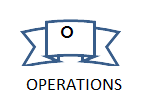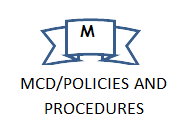Special Education Instruction
Page Navigation
-
Instruction Home
-
K-12 Instructional Programs and Supports
- Deaf and Hard of Hearing (DHH) Program
- Moderate/Severe Instructional Programs
-
Positive Behavior Support
- Contact Us
- Behavior Related Services
-
Trainings
- Functional Behavior Assessment (FBA) Training
- Online Behavior Intervention Implementation (BII) Service Tracking Course
- Online Classroom Management Modules
- Online Functional Behavior Assessment (FBA) Overview
- Professional Development for ED SDP Teachers
- Behavior Safety-Care Emergency Training (B-SET)
- Parent Resources
- FAQ
- Transitioning to Life After High School - DOTS
- Visual Impairment (VI) Program
-
K-12 Instructional Programs and Supports
- Inclusion
-
Effective Classroom Teaching and Learning: Supports and Services
- Access for All: Universal Design for Learning
- Accommodations, Modifications, and Instructional Supports
- Achieving Success: Exiting Special Education Support - Transition from High School
- Dyslexia Awareness
- English Learners and Students with Disabilities
- Extended School Year (ESY)
- For Parents, Students, and Families
- Intervening Early and Often: Multi-Tiered Systems of Support (MTSS)
- Learning Centers and the Resource Specialist Program
- Independent Charter Schools
- Early Childhood Special Education
- Least Restrictive Environment Support
- Private School Support
- Psychological Services Department
- Related Services
- Special Education Home Page
- Los Angeles Unified School District
- Related Services
Audiology
-
The Audiological Resource Unit (ARU) provides a completed audiologic evaluation by an Educational Audiologist for any child from birth-22 years of age. District schools refer students to the ARU that they suspect may have a hearing loss either by a failed audiometric screening or a teacher or parent concerns. Additionally, the Educational Audiologists are part of the team for assess students with suspected Central Auditory processing Disorder. The Educational Audiologists also provide Designated Instructional Services (DIS) to students receiving Deaf and Hard of Hearing services in special day programs; they provide consultative services to students receiving DHH Itinerant Services; and provide support services and professional development regarding the use of residual hearing and amplification systems to students in special day programs, as their teachers, families, and other school staff.







